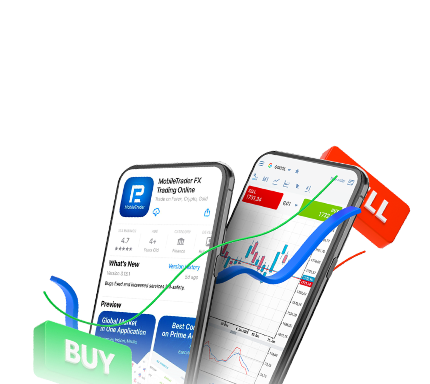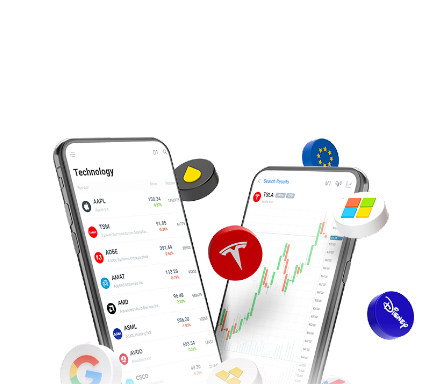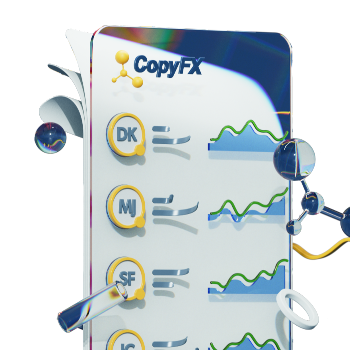How to Become a Successful Trader: 10 Clues

8 minutes for reading
Who is a “successful trader”? They are a trader who has learned to make a stable profit in financial markets. In this article, we will give 10 clues that will help beginners to become and feel like that successful trader. Let us get started.
1. Decide if trading suits you

First and foremost, you need to make sure that the job of a trader is good for you.
Trading is high-risk speculations in financial markets. According to statistics, only 10% of those who have started trading make any serious success.
A trader spends a lot of time analyzing news and charts, looking for trading opportunities, following trades. Analytical mind and tranquility, as well as the ability to take possible losses calmly, are essential here.
For example, if you are choleric with a bursting temper and a love for traveling, you will have a lot of trouble sitting monotonously at the PC all day and analyzing charts. Hence, make your own list of criteria for your perfect job and check if trading meets your requirements.
2. Start from your trading education

As with any job, in trading, you have to start with thorough learning. Make sure your learning stuff is of high quality because the Internet is full of questionable content.
To learn independently, you may use educational videos or courses by experts from reliable brokers or investment companies, books by famous and successful traders, recommendations of professional traders you know personally.
To my mind, the fastest and most efficient way to learn to trade is to seek the assistance of an experienced working trader who makes real money. They can show you how to use the rules and techniques of a reliable trading strategy they use. You just need to make sure that your teacher does really trade well and not just sell courses. Check that your trader uploads trades online, or provides public monitoring of their trading account, or frequently shows good results in traders’ competitions.
3. Choose a reliable broker

After you finish learning, you will need to choose a reliable broker via which you will trade in financial markets. This is a crucial issue as there are now plenty of out-of-the-way companies that claim to be brokers and suggest adding to your account some super-profitable strategies for free. These are mere frauds that will vanish at any moment with your assets.
The easiest way to find a broker is to listen to the recommendations of traders you know. If there are none, pay attention to the following criteria:
- The broker is licensed. To work as a broker, a company needs to get a license from a special organization (regulator). On the website of the latter, you can check the license of your broker;
- The broker is “old”. Choose companies that have been around for at least 5 years, better 10 years or more;
- The broker boasts a good reputation. Make sure that the company is widely known, transparent, has not been involved in any loud scandals, and has never had trouble with cash withdrawal. Check that there is some positive clients’ feedback on the company, and it is included in special ratings of brokers;
- The company provides all the necessary trading instruments;
- The broker offers comfortable trading conditions: a handy terminal (better several), competitive spreads and commission fees, no extra costs, quick depositing/withdrawing of money.
4. Practice on a small deposit

It is worth starting to trade on a demo account. This means trading virtual money without risks. It helps you master your terminal, learn how to open/close positions, place pending orders, etc. Apart from obvious advantages, trading on a demo account has certain drawbacks: a relaxed (superficial) attitude to trading, no real risks, no trading psychology.
That is why I advise against staying long on a demo account. If you have a complete trading strategy, better open a small real deposit and train on it.
Practice shows that the first deposit (or several) is usually lost. Hence, the sum should be small, a sum that you can lose rather easily. In exchange for it, you will gain experience that will help you develop as a trader.
5. Control your risks

Trading in financial markets entails increased risks. By the use of loaned money (leverage), you can open large positions with a small deposit. Surges in market quotations may lead to serious losses, in this case. You can limit them by placing special orders called Stop Losses.
Risk control is an essential part of trading. You can learn how to do it the right way by using money management.
Money management is a way of managing your assets in compliance with your model of risk control. In other words, you decide which part of your capital you will risk in each trade. Only good risk management will protect your deposit and provide for future profits.
6. Use a trading system

The main instrument of a trader that allows them to make a profit is a reliable trading system.
A trading system is a set of rules that your work is based on. It must feature the criteria (signals) for opening and closing positions, following trades, managing risks.
A system is a trader’s advantage. The market is moved by a set of various factors that are rather hard to predict. If you trade chaotically, statistics may counter you, and you will lose your capital sooner or later. Only if you have a trustworthy trading system and stick to its rules you will enjoy a stable profit in the long run.
7. Use a good loss-to-profit ratio
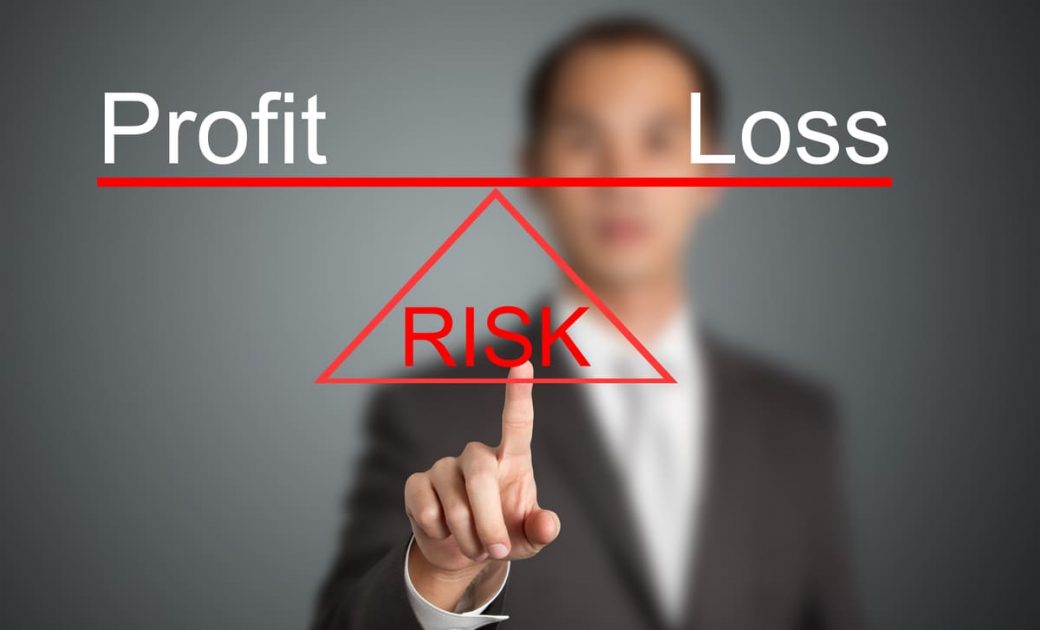
One of the ways of increasing your chances for long-term success is to use a good loss-to-profit (Stop/Profit) ratio. This means that you must choose trades where the size of the Take Profit you plan to place is larger than your Stop Loss. Both the TP and SL must be logical and well-founded.
The ratio may differ depending on the situation: 1/2, 1/3, 1/5, 1/10. The number of positions you open decreases but their quality increases.
For example, a ½ ratio means that the TP is two times larger than the SL. And even if the number of profitable and losing trades turns out equal, this ratio will bring profit to your account.
8. Control your emotions

The skill of controlling your emotions is one of the crucial skills for a trader.
Trading is a risky activity, entailing increased psychic and emotional load. Trading on a real deposit, a trader is influenced by a whole range of various emotions: anxiety, fear, greed, excitement, euphoria, and more.
If a trader gives in to their emotions, they start ruling over them, and the trader loses control over the situation. They violate the rules of their trading system, and such emotional trading leads to a loss of the deposit.
Thus, you need to learn to control your emotions. They will still be with you but will fade and fail to influence your trading.
9. Keep a trader’s diary
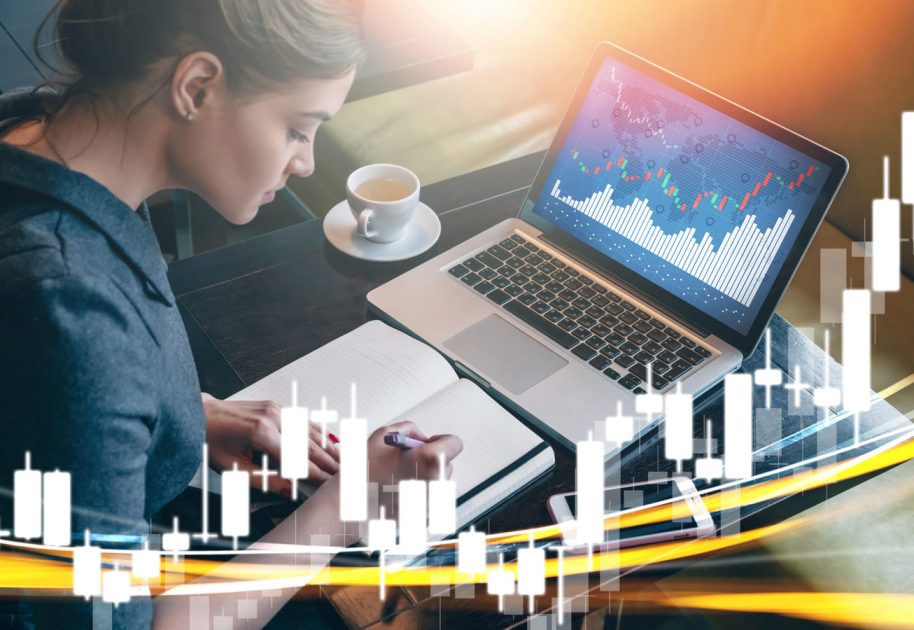
I strongly advise all beginners to keeps a trader’s diary.
A trader’s diary is your trading plan and its incarnation written down on paper (or in a text file). In the diary, you write down and describe all the trades you plan: justify opening the position, specify the placement of the Stop Loss, and where you plan to take the Profit, track your emotional state. Upon closing position, write down the result and analyze statistics.
The diary lets you prepare your trades thoroughly and analyze the results of your trading. In losing periods, the diary will help you understand the reasons for your losses. Such reasons may include emotions that make you violate your trading rules and lead to chaotic trading or some error of your trading system that needs fixing.
10. Bring up discipline

Trading is a complicated job, and success here requires significant effort.
On the whole, most traders understand what to do (trade by a system, manage risks) and what to avoid (trade emotionally, leave your losses unlimited). However, not all of them are disciplined enough to stick to the rules.
To my mind, the key to successful trading unites the following three rules:
- Practice your trading system: design your own or customize an existing profitable system (choose one from a book or your personal learning experience);
- Stick to your system: never violate the rules. If you crave for experiments, open a separate real or demo account for unsystematic trades;
- Keep your trading diary – until your results become stably satisfying. The diary will help you realize the reasons for your losses and track your statistics.
If you follow the advice above, your chances of becoming a successful trader will increase. Good luck!
